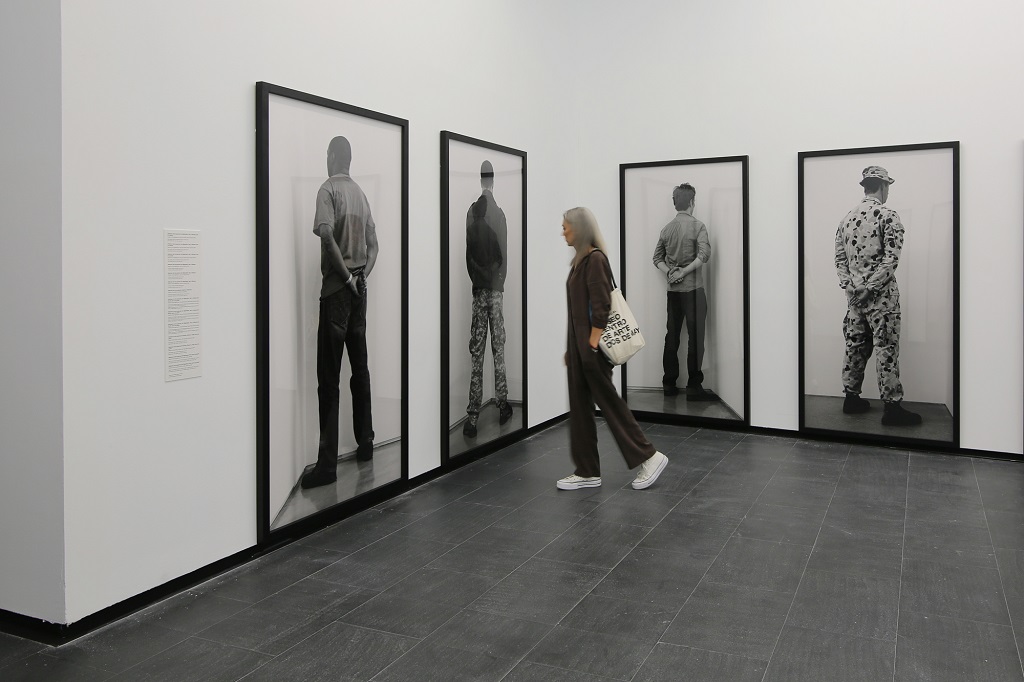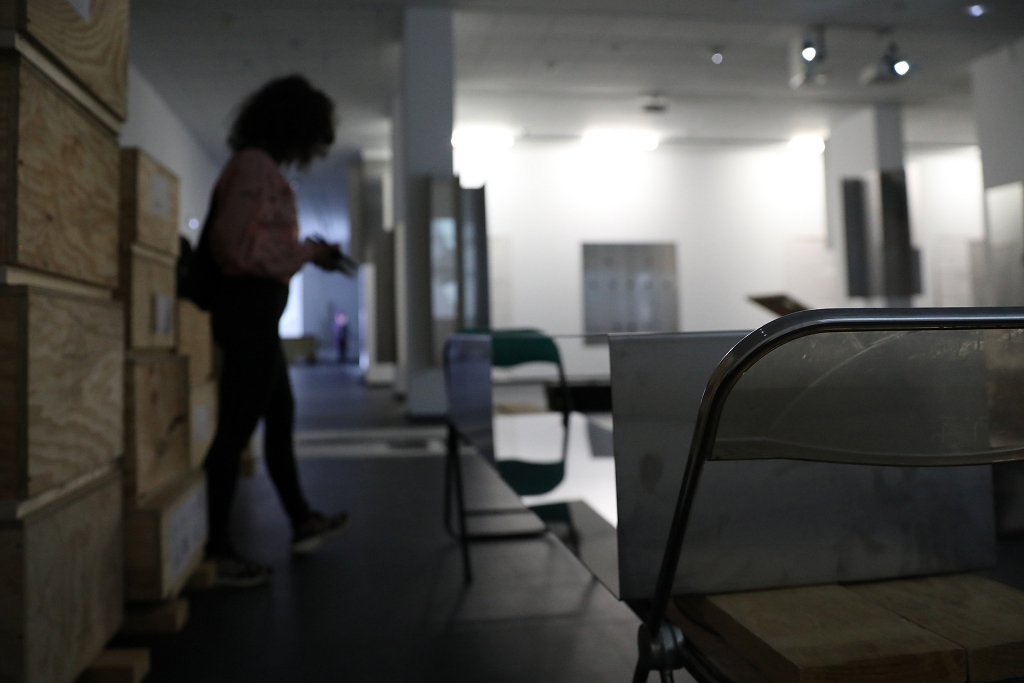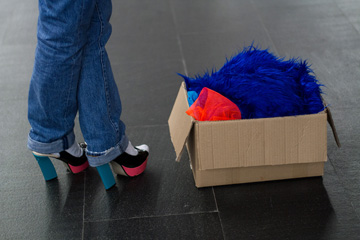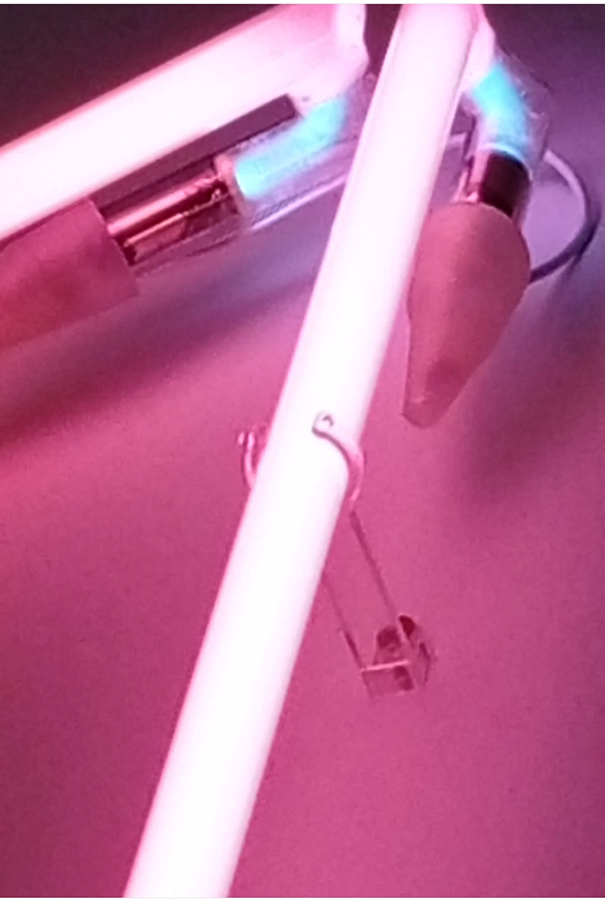The Ha-ha is a deceptive mechanism that plays a role in the construction of the landscape. It generates an illusion of breadth and camouflages its real purpose: to control the movements of certain individuals or species. The name ‘ha-ha’ was used for the first time in the 1709 Dezallier d’Argenville book The Theory and Practice of Gardening, in which he explained that the name came from the exclamation of surprise from spectators when they recognised the optical illusion.
When I was asked to lead this tour, the first thing that came to mind was the title: Ha-ha Wall. It was almost an immediate association, perhaps induced by the huge contrast between this term and the immense work that presides over this show: 1,502 people facing the wall. It’s a laughable wall that is not remotely funny. It is a starting point, given that my and Santiago’s work have little in common at first glance. I have used the word ‘ha-ha’, which is a joke in itself, as a way of breaking the ice and beginning an unlikely dialogue between two generations, between two very different ways of approaching artistic production. Contrast again. And the contrast between light and shadow is what allows us to see… although not always. Shadows conceal or reveal, and looking directly at light can blind us. I want to approach this tour positioned from the paradoxes of looking, from the devices of visibility and concealment used to present facts, from the constant suspicion that in everything we are given to see, something remains hidden.
The CA2M Museum’s Education and Public Activities Department has a line of work aimed at developing thematic tours in which artists and creators are invited to discuss the exhibitions with spectators through the lens of their own practices. In this way, we avoid the presumed objectivity of the narratives that the exhibitions offer to instead break with hegemonic discourses. It is a space of inquiry which encourages each person to make their own interpretation of the image and the story in order to use them to generate new imaginaries.
Dates:
- Saturday 14 December 12 pm
- Sunday 15 December 6 pm
Ángela Cuadra inquires into images that discuss concealment techniques used throughout recent history in a broad phenomenological study of invisibility. Based on different sources with pre-existing historical and semantic meanings, she aims to find new layers of meaning in artistic expression. Grounded on collage and approached with intuition, her works are developed in multiple media, ranging installations to video, drawing and expanded painting.
She has held exhibitions at the Centro de Arte Dos de Mayo, Today Museum (Beijing), Centro del Carmen (Valencia), Sant Andreu Contemporani (Barcelona), Fundación Cultural de Providencia (Providencia, Chile) and Centro Galego de Arte Contemporánea (CGAC) (Santiago de Compostela), among others. Since 2013, she has been working on the project space Salón, which she directs with her husband, Dai K S. She is also one of the founders of the first international fair of nonprofit spaces in Madrid, Supersimétrica.
CAPACITY: 20 PEOPLE
The artist Ángela Cuadra invites us on a guided tour of the exhibition 1502 people facing the wall, where she will approach the artist's work from the paradoxes of the gaze, the devices of visibility and concealment with which the facts are presented to us.

Picture: Sue Ponce. © Santiago Sierra. VEGAP, Madrid, 2024.



